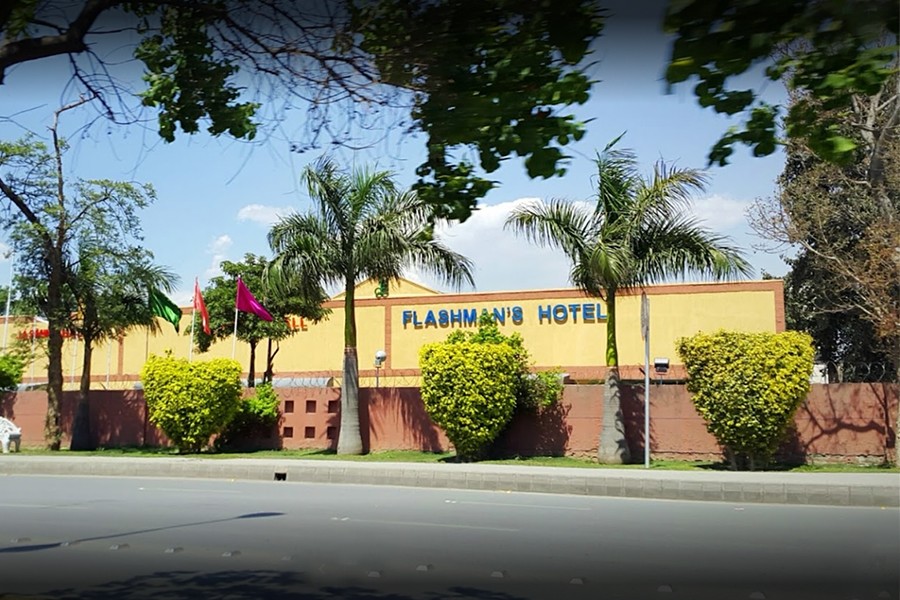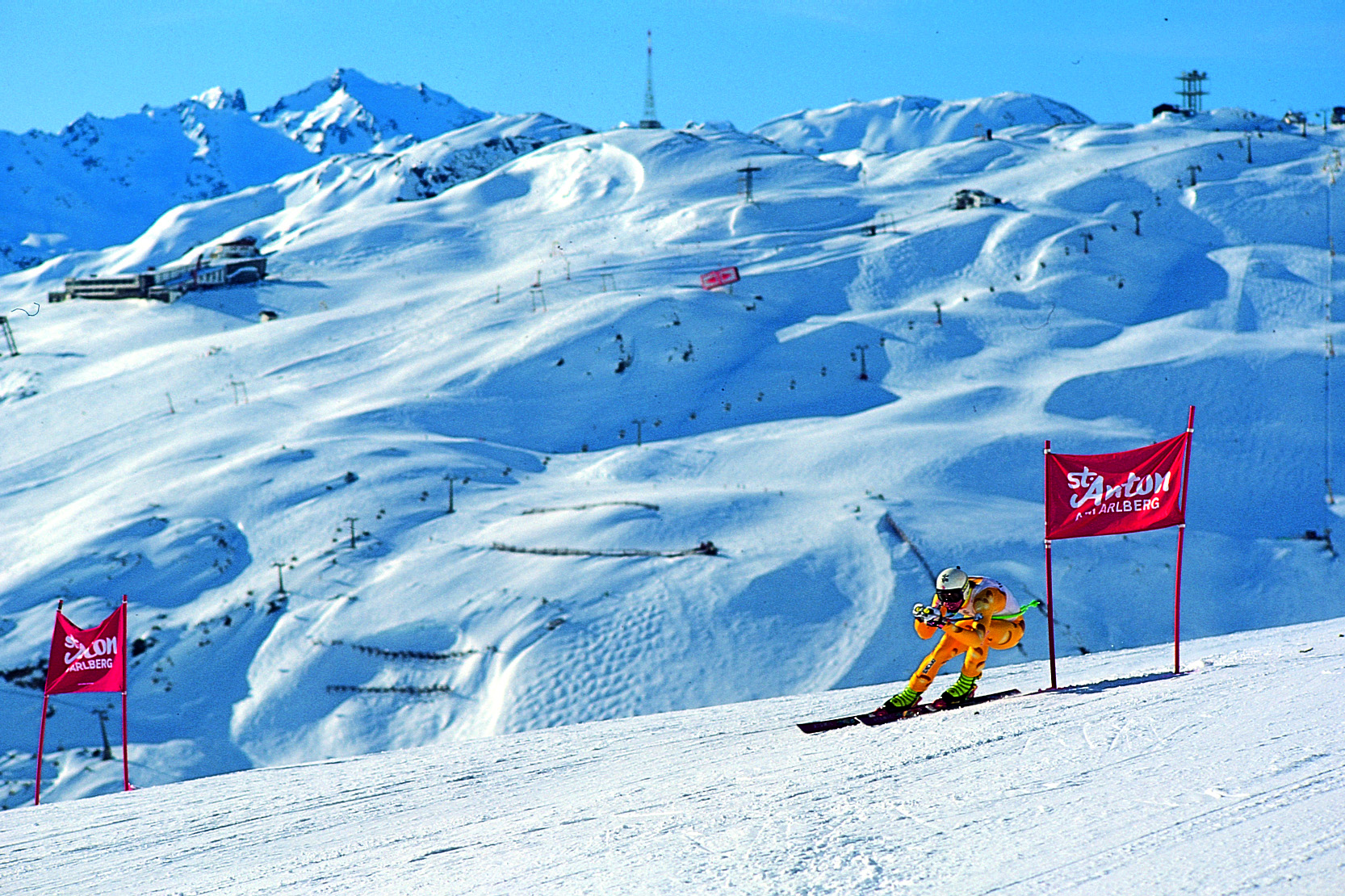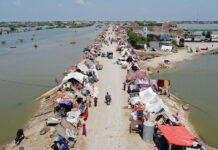Najma Minhas |
Malam Jabba is an unbelievably scenic hill station in the Hindu Kush mountain range nearly 40 kilometers from Saidu Sharif in Swat Valley, Khyber Pakhtunkhwa Province of Pakistan. These haunted hills offering potential ski slopes at 9200 feet above sea level are just 300 km road distance from Pakistan’s capital, Islamabad and almost 50 km from Saidu Sharif Airport, in Swat.
One wonders how come the world of international tourism has still not fully explored and fallen in love with this virgin beauty? Answer lies in Pakistan’s unimaginative bureaucracy, difficult history and inter-governmental wrangling. Until 1969, Swat was ruled by a dynasty of Yousafzai clan. The Wāli of Swat was the official title of the leader (wāli) of the erstwhile princely state of Swat between 1926 and 1969.
The earlier titles of rulers in this area were ‘Akhund’, ‘Khan’, “amir-e shariyat” and briefly “badshah”. This title changed to “wali” in 1926 when Swat became a princely state in the British Raj. Following Pakistan’s independence post-1947, Swat remained an autonomous princely state of West Pakistan and the Wali continued to function as a political entity.
Wali Swat, Miangul Jahanzeb, provided 275 acres of land for this project under a strange deal. He sold five acres to the government of Pakistan for Rs. 40,000 and gifted 270 acres to Pakistan’s tourism department.
The post became defunct in 1969, after the princely state of Swat became dissolved and was incorporated into the North-West Frontier Province of Pakistan (now Khyber Pakhtunkhwa). The region comprising the former princely state today covers parts of the Swat, Buner and Shangla districts of Khyber Pakhtunkhwa. Wali Swat would move his court to Malam Jabba annually during the summer months.
These conventions existed in many parts of the Sub-continent. British Viceroys would move their offices – lock, stock and barrel – to Shimla, in Himachal Pradesh, to avoid Delhi’s punishing heat. By the last quarter of 19th century, Rawalpindi had emerged as the largest garrison town in India and British officers and their ‘mem sahibs’ (wives of British officers) invented Murree for their summer escape from the scorching plains of Punjab.
Read more: Eva shares Pakistan’s tourism potential in captivating video
Romantic inspiration of an Austrian diplomat
Many years later, Malam Jabbba’s status of Swat’s summer capital attracted the affections of a European diplomat. In the summer of 1962, the visiting Austrian ambassador to Pakistan and good friend of Mian Gul Jahanzeb, last Wali of Swat, suggested to the king that a ski resort be built in Malam Jabba. Austrian love for ski resorts is legendary; St. Anton was the first ski resort in Alps and the country is full of lift networks linking small Alpine villages surrounded by spectacular snow peaks.

A government in Vienna happily agreed to fund the chairlift project, provided skis and boots and later supported the development of a training school by the name, “Paithom”. Wali Swat, Miangul Jahanzeb, provided 275 acres of land for this project under a strange deal. He sold five acres to the government of Pakistan for Rs. 40,000 and gifted 270 acres to Pakistan’s tourism department. KP was then called NWFP (North-West Frontier Province) and apparently had no tourism ministry of its own.
The earlier titles of rulers in this area were ‘Akhund’, ‘Khan’, “amir-e shariyat” and briefly “badshah”. This title changed to “wali” in 1926 when Swat became a princely state in the British Raj.
Pakistan’s federal government soon managed and promoted tourism through PTDC (Pakistan Tourism Department Corporation) from 1970 onwards, so when the government built a hotel with 50 rooms, PTDC managed it just like the old “Greens Hotel” in Peshawar, “Flashman’s” in Rawalpindi and Cecil in Murree. What happened when and how remains sketchy. Pakistani media thrive on gossip mills but are exceptionally poor in maintaining accurate accounts of the country.
But whatever impressions exist from word of mouth make us believe that construction of the entire resort at Malam Jabba, first conceived in 1962 through the dreams of an Austrian diplomat, suffered from endless delays and was finally finished in 1988. By that time much had changed; Swat was no longer an autonomous state but was administratively merged into the province of NWFP – though Swat district was part of what is called PATA (Provincially Administered Tribal Areas).
Read more: Pakistan’s Hospitality & Tourism: A long but rewarding journey
Despite the construction of hotel, the ski resort sat idle for another 10 years because of disputes over whether it should be run by the government or the private sector. After two decades, with the multiplicity of government departments and functions, the new dispute will be about who owns the area: forest or tourism. But despite these failings and disputes, ski resort and hotel took off, managed by PTDC of the federal government and by 2006, over 20,000 people in Swat were employed indirectly by tourism to the region, including the resort.
Most sources assert that KP Forest department was nowhere to be seen – though records presented years later will support the contention that land gifted by the Wali (270 acres) was actually registered, in the government records, to Forest Department of NWFP (now KP).
From Terrorism to Tourism
Malam Jabba’s idyllic beauty was again haunted by region’s difficult history when in 2007 Pakistani Taliban (TTP) took control of Swat valley and military action followed to displace them. Tourism, skiing infrastructure, businesses and overall public confidence in future of Swat took severe beating during this period. The resort at Malam Jabba, the PTDC hotel, was converted into a stronghold for Taliban fighters – a kind of command and control center.
In the summer of 1962, the visiting Austrian ambassador to Pakistan and good friend of Mian Gul Jahanzeb, last Wali of Swat, suggested to the king that a ski resort be built in Malam Jabba.
In April 2009, Operation Black Thunderstorm (Rah-e-Rast) was initiated by Pakistan army to retake control of the valley. As the army closed in on positions of the militants and firefights took place the ski lift was destroyed and the hotel at the resort was set ablaze. Some sources believe that hotel was hit by gunship helicopters but irrespective of what happened and how the result was the total destruction of the hotel, ski resort, chair lift and erosion of tourist appetite.
The army had retaken the whole of Swat by the end of summers in 2009, but it took several more years to restore public and business confidence and revive the traditional inflow of tourists from all over the country. Years of uncertainty and mayhem had negatively impacted international skiing in Pakistan and it was important to do something to send the message that things have changed for normal.
Read more: Pakistan suggests single-tourist visa for Carec states to promote tourism
Finally, in 2014, the Tourism Corporation Khyber Pakhtunkhwa leased 275 acres of land in Malam Jabba to a private company after a process of advertisement and bidding for the reconstruction of the ski resort and hotel, in a bid to boost tourism in the area again. Challenge of the KP government, in 2013-14, was to renew confidence in the war-battered district, to restore the tourist streams of past, jump-start local service industry and generate jobs for the local people.

Coming up with a slogan “From Terrorism to Tourism”, it wanted to attract and facilitate large national businesses to come and invest in the area to develop projects on their own and take them forward. But business climate had eroded to the extent that in 2014, few serious investors stepped forward. Only three successful bidders could be considered.
Lowest bid came from someone who was apparently a former TTP commander or his relative; though he offered only Rs. 0.7 million per year (Rs. 7 lac/year) he apparently possessed the original cable of the chair lift that was once provided by the Austrian government. Successful bidder had offered Rs. 12 million per year (120 lac/year) in a 33-year lease.
The resort at Malam Jabba, the PTDC hotel, was converted into a stronghold for Taliban fighters – a kind of command and control center.
That same year, in 2014, the Swat Snow Festival was arranged to showcase rebuilding activities at Malam Jabba. The Norwegian embassy in Islamabad, living up to its historical commitment, initiated the collection of skis, and Pakistani Norwegian businessman and politician Aamir Sheikh helped to collect skis, boots and gloves. Pakistan’s Olympic skier Muhammad Karim, who participated in the recent Sochi Olympics, competed in the giant slalom and downhill race during the event.
Read more: Ecotourism – New Buzz word in Pakistan
From Tourism to NAB
However, true to country’s history, the award of lease process at Malam Jabba was soon to become controversial because many high ups in the forest department believed that Tourism Dept. could not have issued the lease – since land actually belonged to the Forest Dept. Others argued that Rs. 12 million lease per year was on the lower side and lease period should have been 15 years instead of 33 advertised by the KP government. After initial campaign in Peshawar based media by certain quarters unhappy with the award, it was picked up by the KP’s now defunct Ehtesab Bureau (in 2016) and has finally become a NAB case in 2018.

Sources familiar with the situation believe that Samson group, the successful bidder in 2014, has invested almost Rs. 2 billion in construction of a five-star hotel, resurrection of an international standard chair lift, Pakistan’s first Zip Line and has brought in Pearl Continental Hotels as a sub-contractor to manage the 97-room hotel that offers tourists an amazing experience of staying at that pristine picturesque place almost 8000 feet above sea level.

However, now the whole project is stuck in a climate of uncertainty because of the continuing conflict between KP Tourism department that had advertised and finalized the contract, the forest department that now believes that it was forest land and Tourism could not have leased it and the National Accountability Bureau that got dragged into it since 2018.
Given the controversy whole process of structural development slowed down; hotel has not been started, work on the 34-kilometer road has not progressed and other potential investors that could have taken initiatives now watch nervously. Recently high officials of NAB were quoted in a controversial newspaper interview saying that several ministers and top civil servants who authorized Malam Jabba ski resort – including the former CM KPK – will soon be arrested for abuse of authority and awarding a contract against rules.
Read more: French photographers promote tourism in Pakistan
Problem: Mass Media thrives on disinformation
One can hardly blame NAB. This is not about NAB or the now-defunct KP Ehtesab bureau or about a court or any government; this by now is a typical Pakistani story, of troubled governance, half baked conspiracy theories and a culture of mass media that thrives on disinformation and lurid opinions. This is a mess that has been repeated many times over in the past twenty years. A government awards a contract, then some quarters unhappy with the decision run a media campaign, agitate public mind and prepare receptive atmosphere for intervention through sustained disinformation, it is then followed by action by some authority and the matter gets stuck.
Coming up with a slogan “From Terrorism to Tourism”, it wanted to attract and facilitate large national businesses to come and invest in the area to develop projects on their own and take them forward.
Commentaries continue on TV channels, country’s sensational Urdu papers build theories without facts and hundreds of uninformed voices continue to debate issues on TV, newspapers, and now WhatsApp, without any real information – bigger picture remains invisible or is quickly lost. Funny thing about Malam Jabba’s tragedy is that current government ministers and civil servants – like information minister, Shaukat Yousafzai – have been boldly explaining everything on TV and public forums – for anyone who cares to understand. So its not difficult to grasp that lease period was extended, in an open and transparent process, from usual standard 15 years to 33 years because there was not much interest in investing in a remote war-battered area without effective road network.

But 33 years was duly advertised, it was part of the initial offer. Only three bids were serious enough and were shortlisted and the highest bid of Rs.12 million may look relatively small but only if one ignores the fact that it is set to increase each year, through a compound annual interest of 10% and will be more than Rs. 200 million annually in year thirty. According to KP government, it has already modified the actual lease restricting the size of the area to 12 acres instead of 270 acres.
Read more: Pakistan Tourism Summit: Fawad urges media to play positive role
Fivestar hotel was built on a mere five acres. Govt sources insist that in this mess created initially by the inter-departmental war between the high ups of Forest and Tourism larger picture has been ignored. Goal was to restore confidence and business trust in a war-battered region and to facilitate initial investments so that secondary industry can take off. State interests can not be narrowed merely to collection of large sums from granting leases but to promote overall growth that can lead to economic and political stability through job creation, collection of taxes and so on.

Since different sections of Pakistani government do not necessarily work in tandem it has been conveniently ignored that in 2018, Federal Board of Revenue has granted tax amnesty scheme for five years (till 30th June, 2023) to regions of erstwhile FATA and PATA that include Swat district and Malakand Division. It was in response to the political protests from the trading communities in the area and the goal appears to be to provide ample space for business development.
A government awards a contract, then some quarters unhappy with the decision run a media campaign, agitate public mind and prepare receptive atmosphere for intervention through sustained disinformation.
Malam Jabba is home to one of the two ski resorts in Pakistan; the other is at Naltar, Gilgit Baltistan. It is part of the larger area of Malam-Jabba Dara which has a series of small villages and settlements like Salanda, Jehanabad, Talegraam, Badar, Ser, Malam, Kishora, Spine Oba, and finally Jabba. Malam is a small village which comes prior to Kishora village on the main Malam-Jabba road.

This area offers the potential of creating more ski slopes, hotels, and tourist attractions and can bring lots of investments – if the business climate remains favorable. If large scale tourist industry develops then state will be able to collect large sums in the form of sales taxes, excise duties, withholding taxes and income tax – clearly a larger vision is needed.
Way Forward?
In the period between 2005 and 2013 (Chief Justice Iftikhar Ch) and again between 2016 and 2018 (Chief Justice Saqib Nisar) it was usually Supreme Court that would intervene but now in a changed political atmosphere its principally NAB. These outside interventions ostensibly to protect public interest use a narrow lens – violation of rules, misinterpretation of statute book, abuse of authority – without taking into consideration the broader imperatives of the original decision-makers or the larger consequence of these outside interventions.

Pakistan is currently facing international arbitration award of billions of dollars due to Supreme Court annulling Reko Diq contract and it continues to bleed financially in Pakistan Steel Mills – sale was thwarted by CJP Iftikhar Chaudhry. Similarly, Pakistan’s state organs and law enforcement agencies are working overtime to save another difficult international award in case of Karkay Rental Power contract – also annulled by the then Chief Justice. But the management fiasco that builds up as a result of these “interventions” is much bigger than Malam Jabba, Steel Mills, Riko Diq and Karkay.
Read more: Pakistan Tourism Summit: Absence of local vloggers irks netizens
Dozens, if not hundreds, of small and big projects across Pakistan suffer in the same way; most don’t make a headline but the costs of “decision paralysis” they impose on state and society is huge. Working through the plethora of Pakistan’s conflicting laws is getting impossible for the businesses and bureaucracies. Imran Khan government that wants to make quick progress in areas like Housing, Tourism, national and international investments and the privatization of state-owned enterprises will have to come up with a policy prescription.

Goal should be to enhance transparency at the initial stages of a public sector contract (with 100% publicity and full details for easy absorption of public on government web sites) and then set a period of limitation (3-6 months) during which all objections should be received and addressed. Once that period passes then objections should not be entertained. Unless federal and provincial governments come up with such a policy of “transparency and limitation period” there will not be any success in housing, tourism, privatization and investments – forget about public-private partnerships.
Najma Minhas is Managing Editor, Global Village Space. She has worked with National Economic Research Associates (NERA) in New York, Lehman Brothers in London and Standard Chartered Bank in Pakistan. Before launching GVS, she worked as a consultant with World Bank, USAID and FES and is a regular participant of Salzburg Forum. Najma studied economics at London School of Economics and International Relations at Columbia University, NewYork.
Editor GVS is thankful to all those officials and businessman who agreed to speak off the record. Any mistakes of facts belong to the Editors – and will be promptly corrected if pointed out. Editor@GlobalVillageSpace.com


